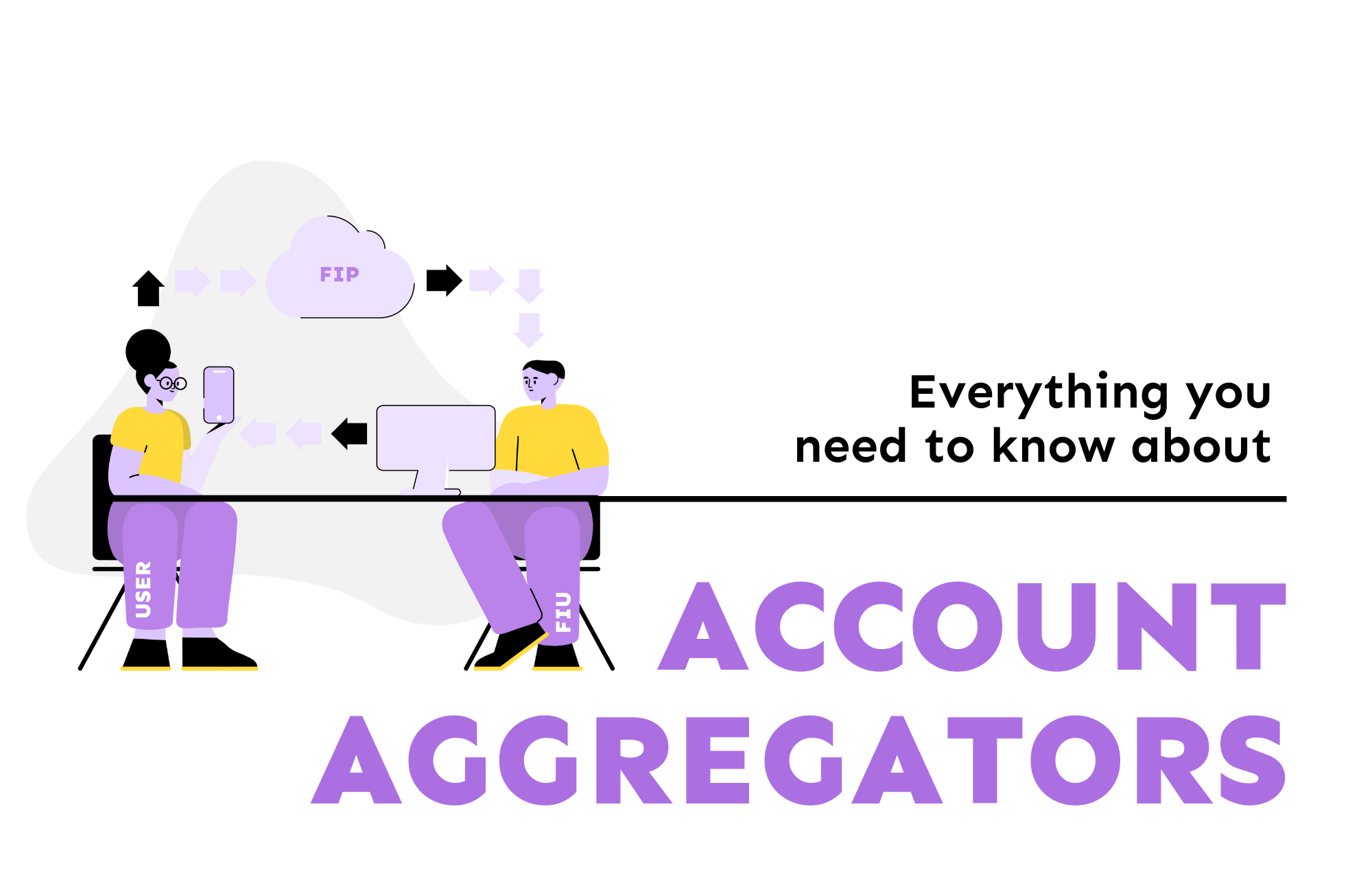
How about stepping into the dynamic world of account aggregator RBI for financial empowerment – a game-changing initiative by the Reserve Bank of India (RBI)? Since its birth, the account aggregator (AA) network has been changing how financial data sharing works. Today, with this innovative framework being adopted by the Securities Exchange Board of India (SEBI), there is a new revolution in place.
Join us on this quest as we explore the transformative potential of account aggregator that will make financial inclusion a reality for everyone.
How do account aggregators work?
Streamlining the often fractured and scattered financial management landscape is what account aggregators do by becoming central points where your financial data is collected. Here’s how it works:
Integration of Financial Accounts: Account aggregators allow for a seamless connection of several financial accounts, such as bank accounts, mutual funds, and investment portfolios. Thus, users will no longer need to use multiple platforms to access their financial details.
Data Collection and Compilation: Once these are linked, account aggregators request and fetch data from these connected accounts on their own. They combine all this information into one view, thus giving the user a complete snapshot of his/her financial position.
Enhanced Accessibility: One of the major strengths of account aggregators is that they can share their financial data with approved third-party service providers. Users have the option to grant permission to lenders, facilitating more accurate and efficient loan appraisals.
Holistic Financial Management: Thus, by providing a single marketplace for receiving financial information from different sources, the account aggregator gives its customers an opportunity to engage in well-grounded budgeting, planning, and investment decisions.
What are the Benefits of Account Aggregators?
Tailored Services: Account aggregators offer tailored products and services that meet individual needs. This improves client satisfaction while increasing revenues.
Streamlined Onboarding: Compliance requirements such as AML and KYC are met in a timely manner when a business adopts account aggregators, which help streamline onboarding processes, thereby reducing operational costs and increasing efficiency.
Comprehensive Financial View: By combining data from various sources into a single central platform, account aggregator users can acquire aggregated financial information, enabling them to make better financial decisions and do proper financial planning.
Enhanced Security: Account aggregator RBI has prioritized the privacy and safety of their data; encrypted channels and API-based authentication are used for secure data sharing to prevent fraud or identity theft.
Accessible Credit: Account aggregators enable moneylenders to have reliable, detailed accounts about people’s finances, enabling them to achieve fair lending practices toward individuals with no traditional credit backgrounds.
Increased Revenue and Profitability: Through cross-sells and personalized recommendations, Account aggregators facilitate increased income generation by companies, leading to profit growth with minimal reporting needs manually done.
Improved Customer Loyalty: With simplified financial management and personalized services, account aggregators foster greater customer loyalty, leading to increased retention rates and long-term profitability.
Efficient User Experience: It provides users with easy access to all their accounts from one place, which, in the long run, enhances user experience and minimizes late payments and penalties.
Fintech Innovation: The role of account aggregators has evolved from just enrollment to be at the forefront of Fintech innovation by leveraging user permissions data for product and service development, thus shaping the future of the banking and finance sector.
Real-time Verification: Quick, basic customer experiences during funding events reduce customer abandonment, and using account aggregators’ instant bank balance verification makes them work faster.
How Account Aggregators’ systems affect banking?
Enhanced Customer Experience: Such systems provide an AA that brings together all customers’ data from various accounts to enhance convenience and ease; therefore, improving customer experience would result in increased satisfaction amongst customers, hence increasing their loyalty towards the company.
Increased Competition: The use of AAs allows customers to share their financial data with third-party service providers, thereby promoting competition in the banking industry.
Changes in Revenue Streams: Banks might change revenue streams as customers utilize AAs to access financial services or products from different providers.
Data Security Challenges: With AAs, there are issues regarding privacy and data security when sharing financial data. Trust in banking sectors necessitates sufficient investment by banks to ensure customer data is protected through robust security measures.
Regulatory Compliance: For a bank to participate in the AA ecosystem, it must adhere to regulatory requirements. The legality and trustworthiness of sharing information depend solely on compliance with regulations and legislation relating to data protection.
Opportunities for Collaboration: On one hand, AA poses threats to traditional banking models but on the other hand; it offers an opportunity for collaboration. For personalized experiences based on customer information, banks should link up with AAs by developing creative finance packages or providing unique services that meet modern-day needs.
What are the Duties of an Account Aggregator?
Customer-Centric Services: There is the principle of customer consent in account aggregators and all services they offer are authorized by customers explicitly.
Legal Framework and Agreements: To ensure that transactions are transparent and lawful, account aggregators must consider making valid agreements with their customers as well as Financial Information Providers.
Transaction Neutrality: Account aggregators usually concentrate more on data management and security rather than enabling direct financial transactions for customers or acting like fund transfer agents.
Customer Identification: They have a robust customer identification process that safeguards them from unauthorized access to personal information or identity theft.
Data Sharing Protocol: Financial information sharing is strictly regulated by specific terms of consent given by the client. Only authorized parties are allowed to access any data; thus giving priority to customer privacy and security.
Business Focus: Account aggregators are exclusively focused on the account aggregation business, with any surplus investment strictly regulated and allowed solely for non-trading purposes.
Data Residency and Security: The financial details of clients of Financial Information Providers are not kept by account aggregators; thereby, data privacy is ensured, and security risks are minimized.
User Authentication: User authentication credentials, such as passwords made when signing up for accounts with financial information providers, cannot be accessed by account aggregators to protect customer login credentials from being tampered with or altered in the future.
Customer Rights Protection: A Citizen’s Charter ensures that all customers’ rights are upheld regarding the sharing of information without any explicit consent from them, thus enhancing trust among individuals and promoting accountability.
Summary – The entry of account aggregator RBI into the financial sector in India is an important milestone. Developed by Perfios Account Aggregation Services Pvt Ltd, Anumati represents the true spirit of account aggregator RBI, which focuses on customer consent, data security, and regulatory compliance. With entities such as Anumati at its forefront, the account aggregator platform is set to change an individual’s relationship with money, resulting in transparency, convenience, and trust in the digital era.
Write and Win: Participate in Creative writing Contest & International Essay Contest and win fabulous prizes.


